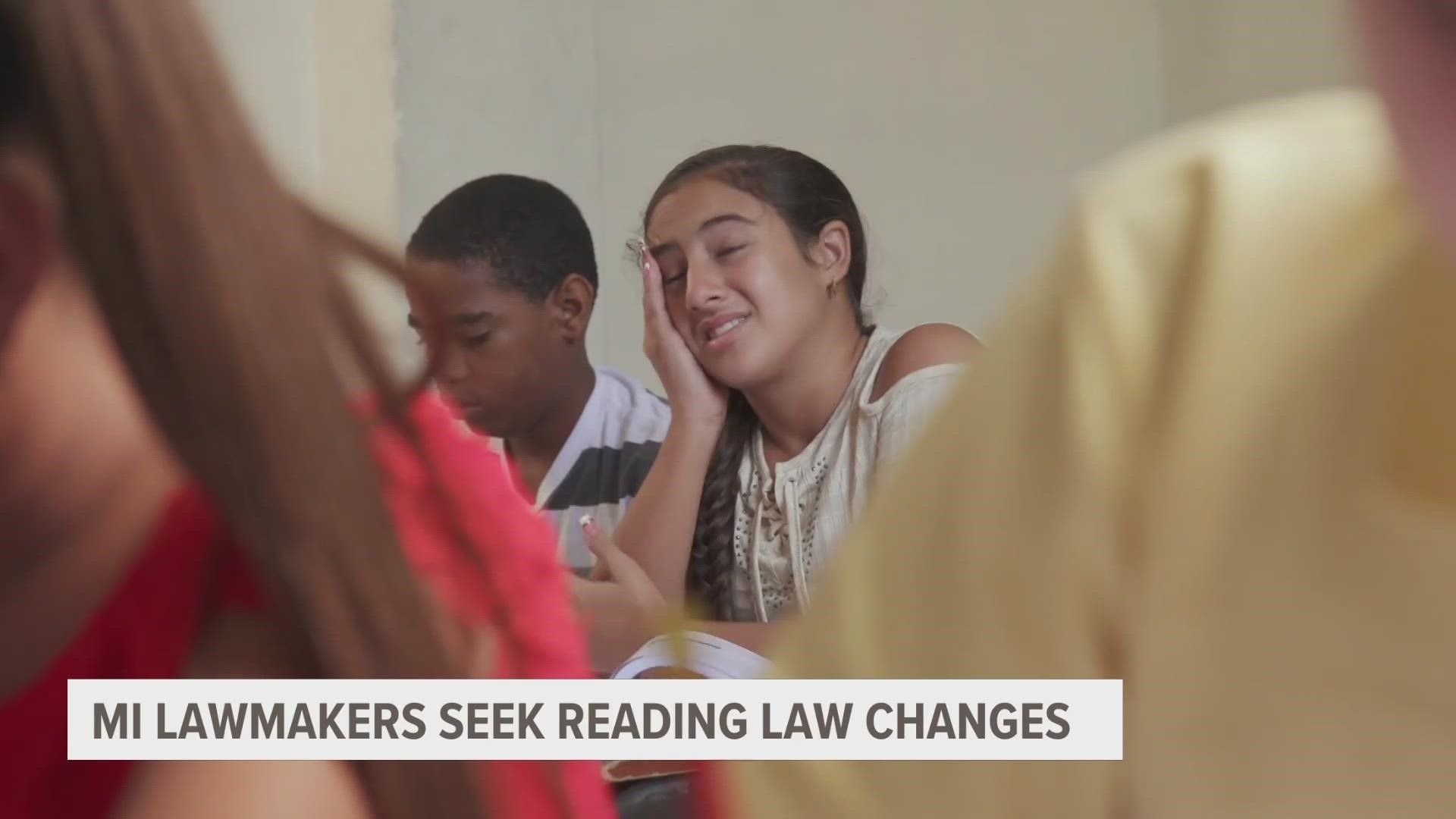LANSING, Mich. — Lawmakers in Lansing have proposed major changes this month to the state's third grade reading law to remove certain benchmarks on a statewide test known as the Michigan Student Test of Educational Progress, or M-STEP.
Currently, students must be less than one grade level behind on the reading portion of the M-STEP in order to move to 4th grade, or perform at a 3rd grade level on an alternative test or through their previous work samples.
Former educator and current State Representative Lori Stone said teaching grades both above and below 3rd grade sparked her passion to support a bill to change the law.
"[Students] don't all advance at the same rate at the same speed," Stone said. "And they in some have growth spurts at different times. And so we have to be prepared for that."
A similar bill already passed the Senate with bipartisan support, but drew criticism.
"This law held adults accountable, which led kids to receiving extra attention if they needed it because they were falling behind," Republican Senator Thomas Albert said in a statement to the Senate advocating against the change. "Kids are more likely to achieve and succeed when they are expected to achieve and succeed."
Educators like Oakridge Schools Superintendent Tom Livezey, however, express support for the change.
"This decision does not need to be made from Lansing; it needs to be made between the partnership between parents and schools," Livezey said. "And, so, where I see this benefiting kids is we can talk about the whole child — not just about what they did on a single test on a single day."
Teaching second grade in Paw Paw, Terra Bovee previously taught as a third grade teacher at Lawrence Elementary. From what she's seen, she believes current law puts stress on students and families.
"For some parents, they do worry about it," Bovee said. "Some students really worry about it. They're terrified that if they don't do well on it, they might have to repeat that grade again."
Focusing on the student and providing individualized support resources, she believes, could help them more than current requirements.
"We talk about putting our best effort, because that's the way the state gets to know them as a person," Bovee said. "But I get to see everything. And so I know they are much more than a test score. And I worry that M-STEP and the stigma that, 'Hey, I might be held back if I don't do my best,' is going to help start to make them feel like they aren't."
Stone's bill in the House still has to go through the House Education Committee before receiving a final vote. Bills are often negotiated and amended during those committee discussions.
The Senate bill has already cleared that committee and that chamber and now moves on to the House.
►Make it easy to keep up to date with more stories like this. Download the 13 ON YOUR SIDE app now.
Have a news tip? Email news@13onyourside.com, visit our Facebook page or Twitter. Subscribe to our YouTube channel.

